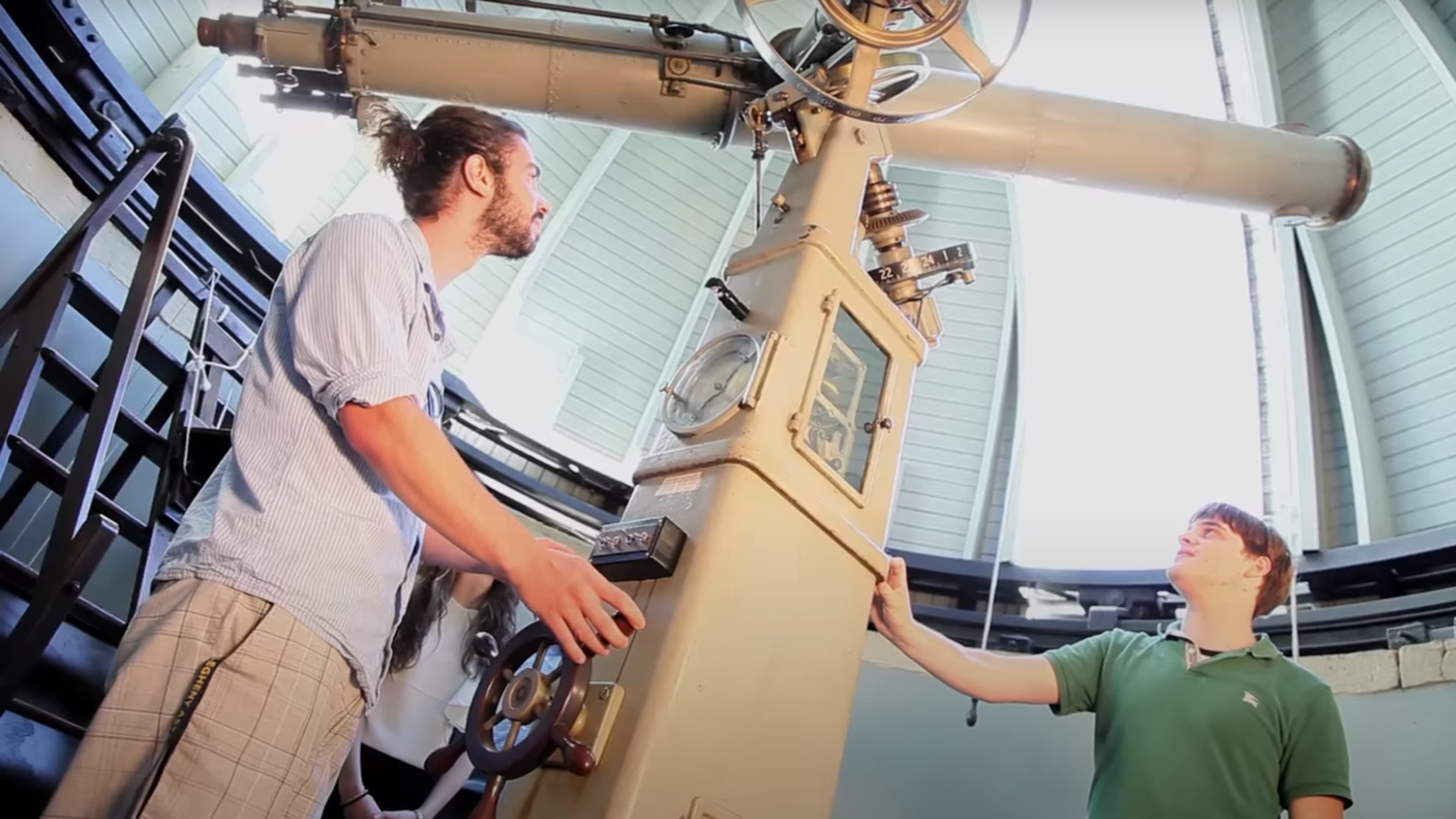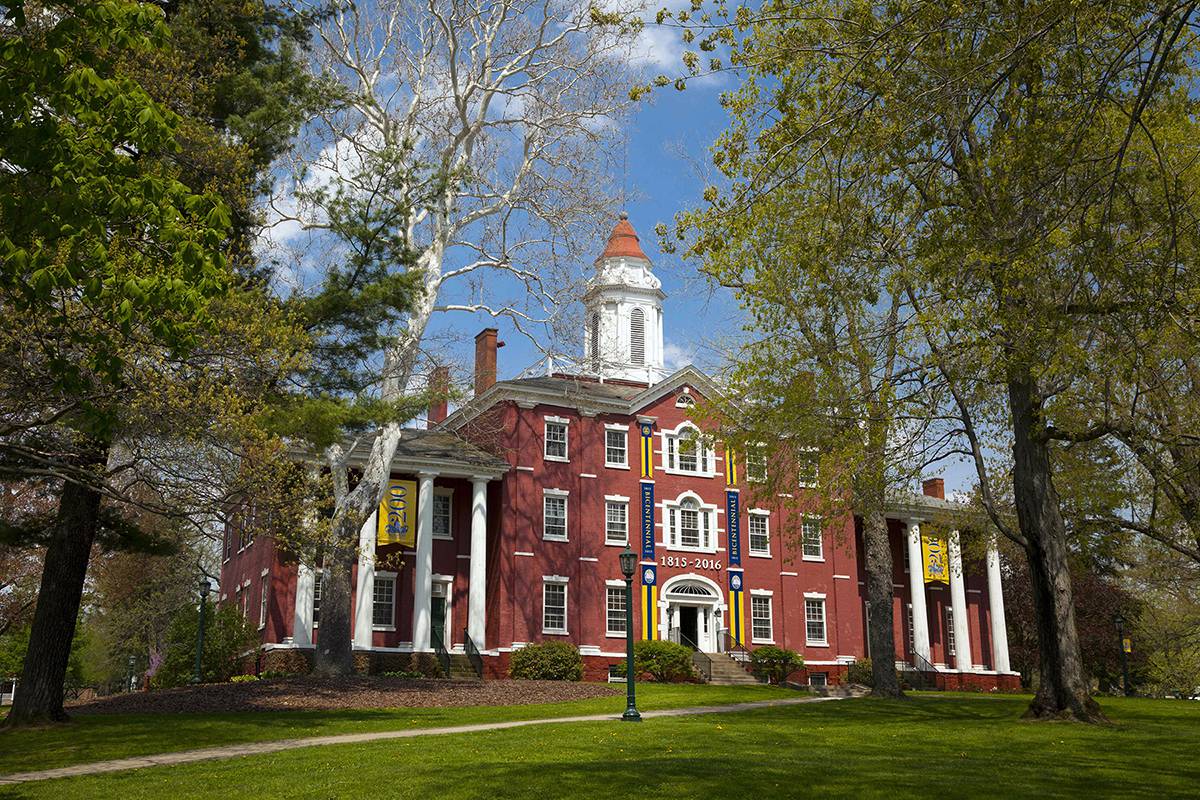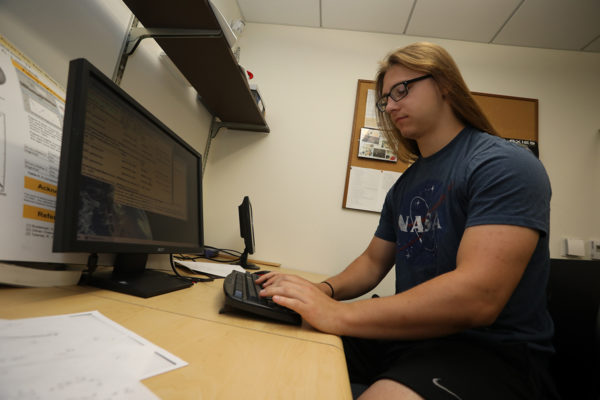Mathematics and Natural Sciences
Astronomy Minor
Astronomy is more than the study of the constellations — you'll develop an appreciation of the beauty and order of the known universe, understanding how astronomers have come to learn what we know. Along the way, you'll address questions like “What would it be like to travel to a black hole?” “What is the fate of the universe?” and “Is there other intelligent life?”

Your Four-Year Journey
Students often combine Astronomy with a major in Economics, Environmental Science & Sustainability, History, Political Science, or Studio Art.
Although there are many ways to complete the astronomy minor, you’ll most likely take mathematics, an introductory physics course, or an introductory astronomy course in your first year. Math and physics will provide you with the foundation for later courses, while the introductory astronomy course will give you an understanding of the tools and fundamental physical concepts of astronomy.
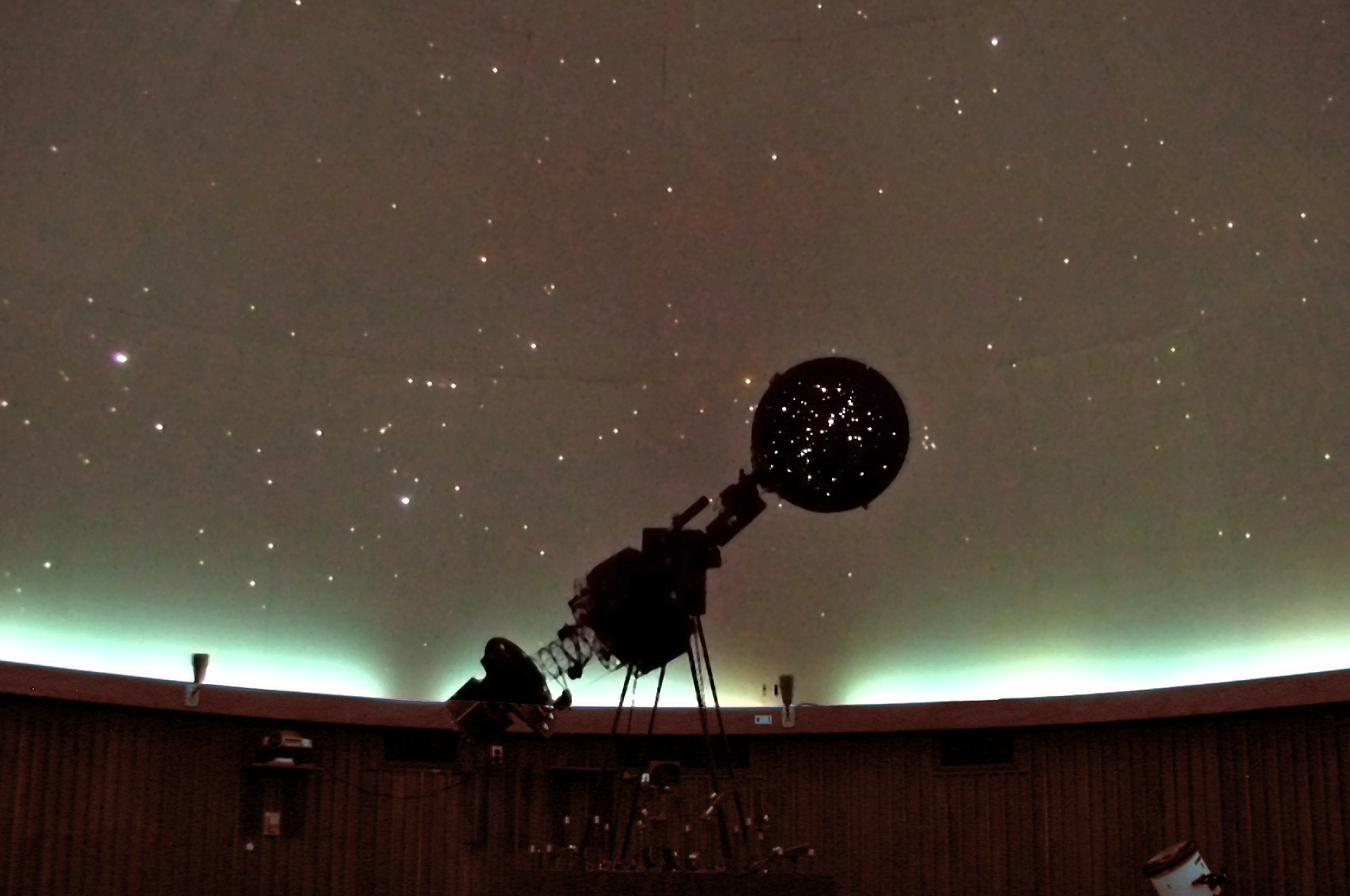
Many astronomy minors take an introductory physics course in their second year, along with an elective course related to astronomy from within the departments of Geology, Philosophy, or Chemistry.
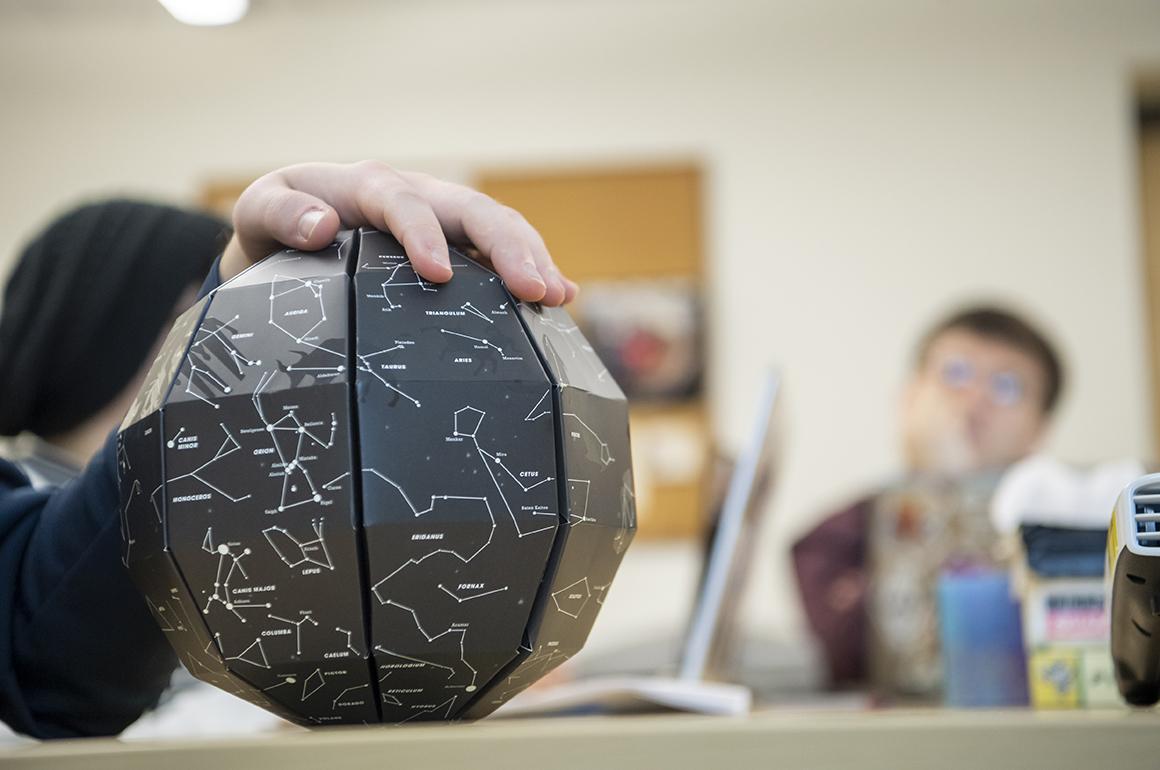
Depending on your graduation year, a third-year astronomy minor will take an advanced course either on stars or on current topics in astrophysics. The former course allows for the exploration of stellar astrophysics: how stars form, live, and die, as well as how they create exotic objects like white dwarfs, neutron stars, and black holes.
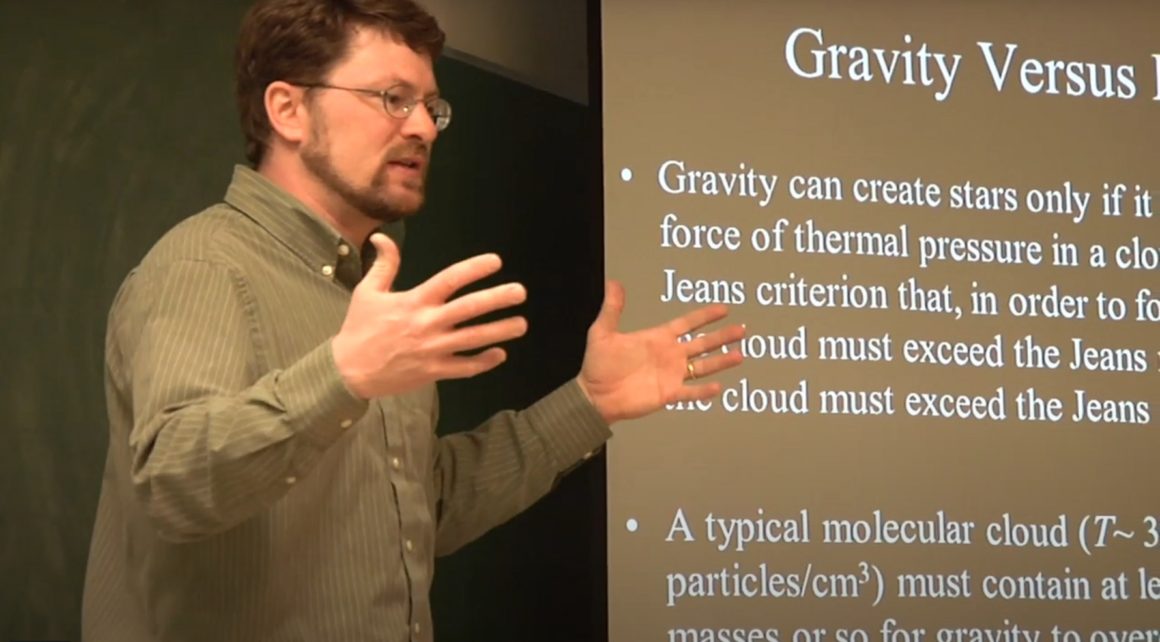
If you’re a fourth-year astronomy minor, you will take an advanced course either on stars or on current topics in astrophysics. The latter course focuses on galaxies and cosmology, and it explores topics such as the big bang and the fate of the universe.

Class of 2019; Graduate Student in Astrophysics at Carnegie Mellon University
“ In a small environment, you get a lot of attention from your professors and connect well with your peers. The professors are very approachable. The fact that you can work with your professors in a research environment while you’re a freshman or a sophomore makes Allegheny stand out. ”
Career Outcomes
93
of Allegheny graduates are employed, in grad school, or in full-time service within six months.
80+
Acceptance rate to graduate and professional school for Allegheny students







